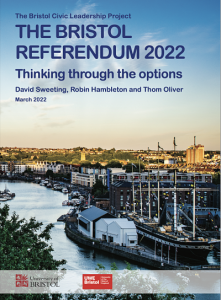UG Social policy with quantitative research methods student, Isabella Oats, discusses key findings from her UG dissertation on the link between subjective well-being and political action with reference to the upcoming UK elections and how the Euros might impact the result.
Category: Urban and Public Policy Research
Vulnerability, critical human security and state capacity in uncertain times: South Korea and the UK
Critical Human Security and Post-Covid Public Policy[1] Blog Series Intro
Editors: Patricia Kennett and Huck-ju Kwon
The recent global pandemic posed multiple threats to individuals and societies and its impacts highlighted the intersectionality of these threats, their uneven impact and the longer-term scarring effects and policy challenges post-COVID-19. This series of blogs draws on research carried out during a recently completed UKRI funded knowledge exchange project[1] led by Professor Patricia Kennett in the School for Policy Studies, University of Bristol, UK and Professor Huck-ju Kwon, Seoul National University, South Korea– Critical Human Security and Post-COVID Policy Challenge. Through a range of research and knowledge exchange activities and with a regional focus on East Asia and Europe, in particular South Korea and the UK, the team sought to identify and address the complex and multisectoral social and public policy challenges in the aftermath of the pandemic and identify weaknesses and fault-lines in social, economic and political institutions, policies and processes highlighted and intensified since 2020. (more…)
Europe’s permanent state of crisis: post-COVID governance and critical human security
Critical Human Security and Post-Covid Public Policy[1] Blog Series. Blog No.2
By Dr Noemi Lenvai-Bainton, School for Policy Studies, University of Bristol

The post-COVID landscape in Europe is more uncertain than ever. Crippled by multiple, overlapping and intersecting crises, Europe is faced with fundamental challenges to its supranational governance, in a space in which multiple and overlapping authorities, capacities and issues emerge requiring an extremely complex coordination between different scalar governing structures.
Digital transformation and critical human security: Theoretical propositions to explore opportunities and challenges for increased human security in public policy
Critical Human Security and Post-Covid Public Policy[1] Blog series. Blog No. 3
By Matthew Lariviere, School for Policy Studies, University of Bristol
Recent interest from national governments and supranational non-governmental organisations has begun to focus on the opportunities and threats the proliferation of digital technologies may pose to human security. However, ‘the digital’ is still often poorly conceptualised and abstracted within policy discourse. (more…)
Opportunities and Policy Challenges of Digital Societies: Contact tracing systems and critical human security in South Korea and England during the COVID-19 pandemic.
The Bristol Referendum 2022: Thinking through the options
 The co-authors of this contribution are members of the Bristol Civic Leadership Research Project: David Sweeting, Senior Lecturer in Urban Studies at the School for Policy Studies, University of Bristol; Robin Hambleton, Emeritus Professor of City Leadership at the University of the West of England, Bristol; and Thom Oliver, Associate Lecturer, University of the West of England, Bristol.
The co-authors of this contribution are members of the Bristol Civic Leadership Research Project: David Sweeting, Senior Lecturer in Urban Studies at the School for Policy Studies, University of Bristol; Robin Hambleton, Emeritus Professor of City Leadership at the University of the West of England, Bristol; and Thom Oliver, Associate Lecturer, University of the West of England, Bristol.
In a referendum on 5 May 2022, the citizens of Bristol will make an important decision about the way our city is governed. (more…)



